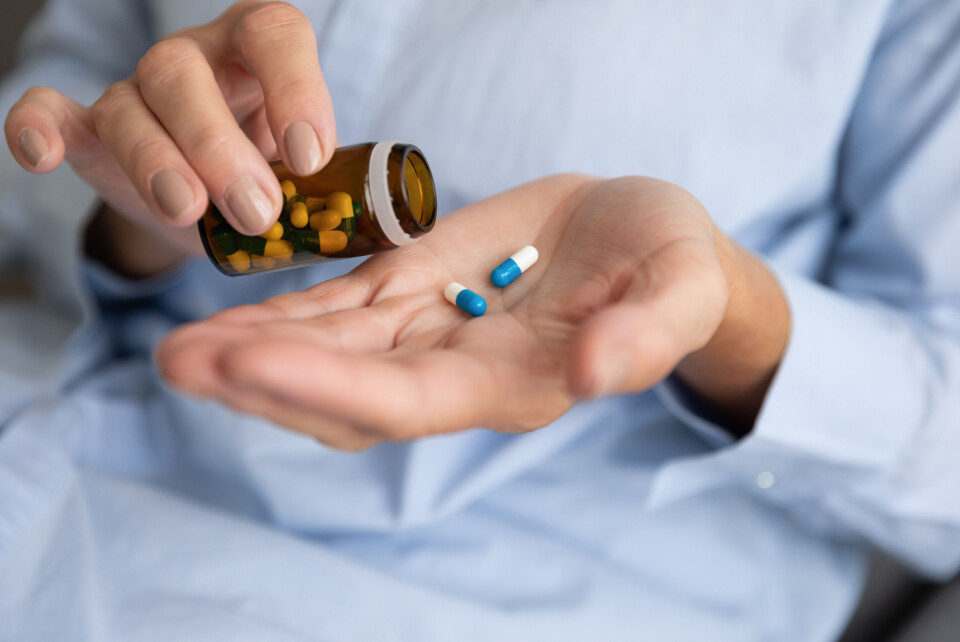-
Is new healthcare fee for Americans still on the way in France?
Last year French MP told how he put forward plan aimed at ‘visitor visa’ holders
-
I had a heart attack in France without realising it
An evening with friends took an unexpected turn for 74-year-old
-
How France’s new food strategy aims to change the national diet
The plan outlines new goals for meat consumption
How are you reimbursed for your medicines in France?
With your carte Vitale you can be reimbursed up to 100% depending on the efficacy of the medicine

In France you can use your carte Vitale to be reimbursed between 15%-100% for medicines depending on how vital and effective the medicine is thought to be.
Your carte Vitale contains your social security information and relates to the amount that will be paid by the state.
At the pharmacy the patient hands over their carte Vitale and a card for their mutuelle, if they have one.
A mutuelle is a top-up health insurance policy to refund the part of costs not repaid by the state system.
Read more: Explainer: French healthcare terms that are useful to know
Any part of the cost attracting a state reimbursement is not payable – the pharmacist is reimbursed directly by the state.
The mutuelle card allows the pharmacist to check the patient’s top-up cover, and, if appropriate, dispense with payment of any remaining amounts as well.
Reimbursement is only available for prescribed medicines. The part not reimbursed is payable by the patient or their mutuelle (if they have one and if it has sufficient cover to top-up the full cost).
Medicines have different levels of reimbursement based on how medically effective and essential they are considered to be.
What are the different reimbursement levels for medicines in France?
The different reimbursement levels are as follows:
-
100%: For irreplaceable medicines for treating very serious illnesses that are costly to treat
-
65%: very significant effect
-
30%: moderate effect. This may include some préparations magistrales (medicines specially made by the pharmacist)
-
15%: weak medical effect
These used to be shown by coloured stickers on boxes called a vignette but the information is now shown in other ways, notably information printed on the back of the original prescription by the pharmacist called the ticket vitale.
Read more: Explainer: Paying to see a doctor or health specialist in France
Another way of checking is to scan a code on the box using the smartphone application medicaments.gouv.fr.
What do the different signs on drug containers mean?
Other signs on drug containers giving information on them include an upside-down black triangle which indicates the drug is on the European watch list for drugs that may have harmful side-effects.
Three triangle signs are also used to show possible side effects for drivers – with a red triangle warning motorists that they should not drive while taking the medicine.
All medicines also come with a data sheet explaining how they are taken, the usual dose, common side effects etc.
Another official source of information on specific medicines is base-donnees-Publique.medicaments.gouv.fr.
Can the reimbursement amount change for different medicines?
As important new medicines arrive on the market some older ones may have their reimbursement decreased or removed following a decision by the Health Ministry.
If you will be taking a medicine long-term, it may be useful (where this is an option) to go for the largest format box, to minimise franchise payments (a small amount taken off the reimbursement per box).
A law has been passed on dispensing certain medicines by precise quantity prescribed rather than in packets of set amounts, to cut wastage.
This is called la dispensation adaptée.
Medicines concerned include some painkillers, medicines for bowel problems and antiseptics and disinfectants.
One recent change is that pharmacists are able to levy small charges called honoraires de dispensation which are shown on the ticket vitale information that the pharmacist stamps on the back of your prescription.
This is meant to better remunerate the pharmacist’s work in analysing the prescription, giving advice, or adapting the amount of medicine to your needs.
These small fees mount up per box of medicines and per prescription and vary depending on factors including the size of the box and how complex the prescription is.
They are reimbursed by the state to the same amount as the medicines concerned, and the rest will usually be picked up by your mutuelle.
Related articles:
How to get a social security number and carte Vitale in France
























